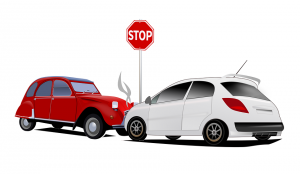Where does the grey area exist?
If you own a business and that business owns and operates vehicles, you need some form of Commercial Auto Insurance. If you rent vehicles or have employees use their personal vehicles for work purposes, you need to secure a hired and non-owned auto policy. If you have a trailer where you move specialized equipment to third party locations’ than you need an inland marine insurance policy. When you have a claim that involves a vehicle there becomes an issue of which policy kicks in to cover what is damaged. This is a time when partnering with an experienced independent insurance agent and purchasing all policies from one carrier can benefit your business immensely. Here are several tips to help you make sure all of your vehicles and equipment are properly insured.
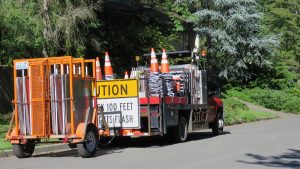
First you need to know what exactly is covered under each policy.
Commercial Auto
A Commercial Auto Insurance Policy will cover vehicles your business owns that are used for business purposes. If you have a personal vehicle that you also use for business purposes, you still need to buy separate personal and commercial auto insurance policies for that vehicle. If you only have a personal policy and you use the vehicle for business purposes, the liability is taken on by the business. The personal auto policy will not cover the damage to third party vehicles that are damaged in an accident you cause. If you do use your personal vehicle for business purposes, it is important to speak long and honestly with your independent insurance agent about what exactly you use the vehicle for and how best to insure it.
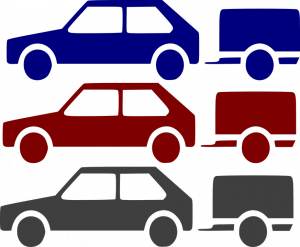 Hired and Non-owned Auto
Hired and Non-owned Auto
If you have employees who drive rented vehicles when they travel or who use their personal vehicle for business purposes, you have a need for a Hired and Non-Owned Auto Policy. This policy may be in place of a Commercial Auto Policy or in addition to it. When an accident occurs that is the fault of your employee, if they are in their personal car, the personal insurance policy will cover the damages to the employees vehicle. Now the property and bodily injury liability to third parties is the liability of the business. This is why you need to strongly consider this policy for your business. One accident that causes a car to be totaled and a third party to spend a week in the hospital can easily result in your business being responsible for tens of thousands of dollars. If you do not have the ability to cover these costs you need an insurance policy to protect your business.
Inland Marine
An Inland Marine Insurance Policy is a policy you would purchase in addition to a Commercial Auto Policy in order to protect specialized equipment that is commonly in transit. A common business who needs this coverage is a landscaping company. A Commercial Auto Policy will coverage the vehicle your business owns and operates. It will also cover your business for any liability you face to third parties damaged by an accident caused by your business. If you have specialized equipment that is transported on either a trailer connected to your vehicles or in the back of a truck, you need to purchase an Inland Marine Policy.
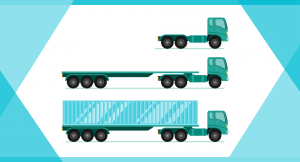
What can you do as a Business Owner?
Partner with an independent insurance agent
 Partnering with an independent insurance agent is always the best place to start when you are considering purchasing commercial insurance for your business. This is best for you because an independent agent is not restricted to one or a select few carriers. Typically an independent agent partners with anywhere from 10 to 40 carriers. They can use these relationships to force carriers to compete for your business. This will allow you to get better coverage at the lowest possible rate.
Partnering with an independent insurance agent is always the best place to start when you are considering purchasing commercial insurance for your business. This is best for you because an independent agent is not restricted to one or a select few carriers. Typically an independent agent partners with anywhere from 10 to 40 carriers. They can use these relationships to force carriers to compete for your business. This will allow you to get better coverage at the lowest possible rate.
Talk with your agent extensively
No matter if you decide to partner with an independent or captive agent, you need to take the quoting process seriously. If you fail to disclose something to your agent or carrier during the quoting process, it can create an enormous headache for you at a later date. The work case scenario would be that your carrier drops you from coverage because of the failure to disclose something about your business. This can cause you and your agent to have to find a new carrier to cover your business mid term. If this process does not go smoothly it can cause you to have a lapse in coverage. Many carriers will not cover a business who has had a lapse in coverage and this may force you to have to buy some coverage’s from the state provider. The state provider is almost always more expensive than buying coverage out on the open market.
Express your comfort with risk to your agent
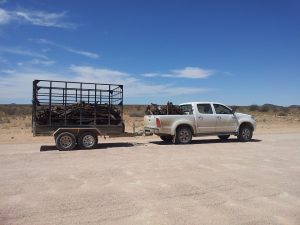 Insurance agents talk to many business owners throughout each work day. If they are a nationwide agency, they may speak with a restaurant owner from Los Angeles, a dairy farmer in Wisconsin and a commercial fisherman from New Orleans all before lunch. Each of these businesses faces enormously different risks and the people who own these businesses may have dramatically different expectations from their insurance agent. The only way to be for certain that your agent is looking for what is most important to you is to directly tell them. If you value price above all else, let them know. If you want to insure your business to the teeth, let them know this as well. The more you tell your insurance agent, the less likely you are to have problems with that agent.
Insurance agents talk to many business owners throughout each work day. If they are a nationwide agency, they may speak with a restaurant owner from Los Angeles, a dairy farmer in Wisconsin and a commercial fisherman from New Orleans all before lunch. Each of these businesses faces enormously different risks and the people who own these businesses may have dramatically different expectations from their insurance agent. The only way to be for certain that your agent is looking for what is most important to you is to directly tell them. If you value price above all else, let them know. If you want to insure your business to the teeth, let them know this as well. The more you tell your insurance agent, the less likely you are to have problems with that agent.
Listen to your agents recommendations
Listening is a skill most people could do much better. Business owners especially are confident people. They would not have branched out on their own to start a business without confidence, but that confidence can be a hinderance if you think you know more about every aspect of your business than the experts you partner with. If you find an independent agent with whom you trust and you have a detailed conversation with them, they should be able to find the best package of coverages to fit the needs of your business. If you go through this process listen to the insurance professionals. They interact with business owners not only when selling them a policy, but also when they have to use that policy because something bad has happened to them. If you trust your agent, they should only offer a policy that you absolutely need. If they recommend it, it is more than likely in your best interest to listen to them.
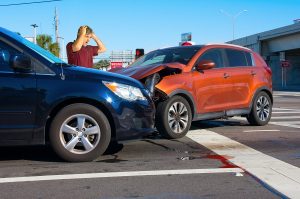
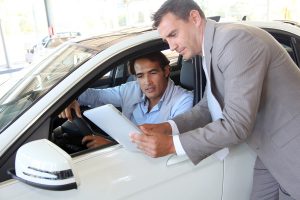


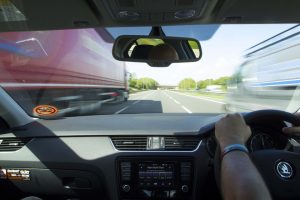

 Hired and Non-owned Auto
Hired and Non-owned Auto
 Partnering with an
Partnering with an  Insurance agents talk to many business owners throughout each work day. If they are a nationwide agency, they may speak with a restaurant owner from Los Angeles, a dairy farmer in Wisconsin and a commercial fisherman from New Orleans all before lunch. Each of these businesses faces enormously different risks and the people who own these businesses may have dramatically different expectations from their insurance agent. The only way to be for certain that your agent is looking for what is most important to you is to directly tell them. If you value price above all else, let them know. If you want to insure your business to the teeth, let them know this as well. The more you tell your insurance agent, the less likely you are to have problems with that agent.
Insurance agents talk to many business owners throughout each work day. If they are a nationwide agency, they may speak with a restaurant owner from Los Angeles, a dairy farmer in Wisconsin and a commercial fisherman from New Orleans all before lunch. Each of these businesses faces enormously different risks and the people who own these businesses may have dramatically different expectations from their insurance agent. The only way to be for certain that your agent is looking for what is most important to you is to directly tell them. If you value price above all else, let them know. If you want to insure your business to the teeth, let them know this as well. The more you tell your insurance agent, the less likely you are to have problems with that agent.